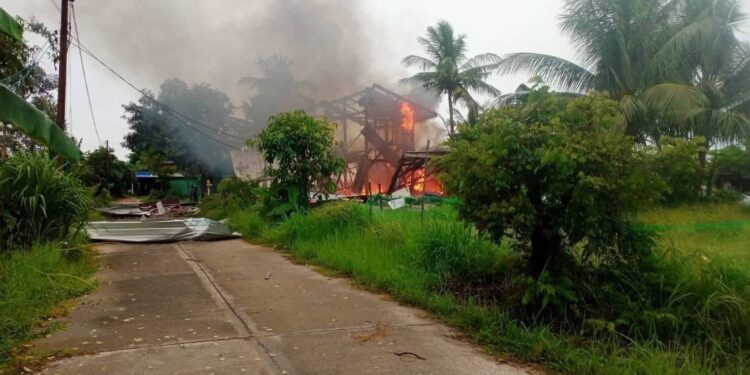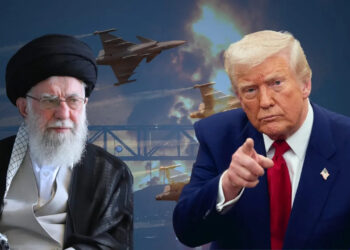SURIN, Thailand, July 27, 2025 — Deadly clashes between Thai and Cambodian forces along their disputed 817-km border have intensified, marking the worst hostilities between the Southeast Asian neighbors in over a decade. The conflict, which erupted on Thursday, July 24, following a landmine explosion that wounded five Thai soldiers, has claimed at least 32 lives, displaced over 135,000 civilians, and raised fears of a broader regional conflict.
The violence began near the ancient Prasat Ta Muen Thom temple in Thailand’s Surin province and Cambodia’s Oddar Meanchey province, a contested area central to a century-long border dispute. Thai authorities reported that Cambodian forces fired heavy artillery and rockets, targeting both military and civilian areas, including a hospital in Surin’s Phanom Dong Rak district. Thailand’s Health Ministry confirmed 19 deaths, including 13 civilians and one soldier, with 62 others wounded. Cambodia reported 13 deaths, including one civilian and five wounded in Oddar Meanchey, according to provincial official Met Measpheakdey.
Thailand’s military responded with F-16 airstrikes on Cambodian military targets, escalating the conflict. Both nations accuse each other of initiating the violence. Thailand claims Cambodian troops deployed a drone and fired first, while Cambodia’s Defense Ministry insists Thai soldiers violated a 2000 agreement on safe patrol paths, prompting defensive action. Cambodia denies Thailand’s allegations that it laid new Russian-made landmines, asserting that the explosives are remnants of its civil war (1970-1998), which left nearly 20,000 Cambodians killed and 45,000 injured by unexploded ordnance.
The landmine incident on July 23, which cost one Thai soldier a leg, prompted Thailand to recall its ambassador from Phnom Penh, expel Cambodia’s envoy, and close all northeastern border crossings. Cambodia retaliated by downgrading diplomatic ties and recalling its embassy staff from Bangkok. Tensions, already high since a May clash killed a Cambodian soldier, have been further inflamed by nationalist rhetoric and a leaked phone call between Thai Prime Minister Paetongtarn Shinawatra and Cambodia’s former leader Hun Sen, leading to Shinawatra’s suspension amid domestic backlash.
The fighting, now spanning 12 border locations, has displaced over 131,000 Thais and 4,000 Cambodians to evacuation centers. Videos show villagers fleeing to concrete bunkers amid gunfire and explosions, with homes, a gas station, and a hospital damaged. Thailand declared martial law in eight districts, while Cambodia’s Prime Minister Hun Manet urged the UN Security Council to intervene, condemning Thailand’s “unprovoked aggression.”
International calls for de-escalation are growing. The U.S. Embassy advised citizens to avoid the border area, while Malaysia, China, and the U.S. offered mediation, though Thailand prefers bilateral talks. Thai Acting Prime Minister Phumtham Wechayachai stated that negotiations will not proceed until fighting ceases. Cambodia alleges Thailand used cluster munitions, a claim Thailand denies, asserting compliance with proportionality principles.
The dispute, rooted in colonial-era Franco-Siamese treaties, centers on undemarcated border areas, including the Preah Vihear temple, awarded to Cambodia by the International Court of Justice in 1962. Past clashes, notably in 2008 and 2011, followed Cambodia’s UNESCO World Heritage bid for the temple. Analysts warn that nationalist sentiments and political pressures, including Hun Sen’s influence and Thailand’s internal political turmoil, risk prolonging the conflict.
As artillery fire continues, regional leaders and the UN are pressing for a ceasefire to prevent further civilian casualties and a potential slide toward war. “This is a breach of humanity,” said Thailand’s Social Development Minister Varawut Silpa-archa, condemning attacks on civilians.




































